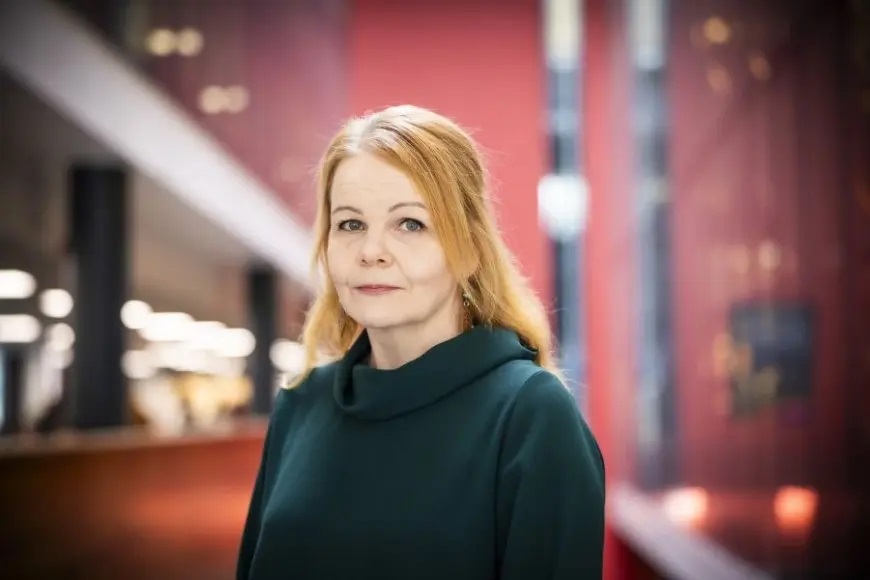The research interests of Professor Päivi Kymäläinen focus on urban environments and everyday urban life. Cities need to take steps to accelerate sustainable development in all its dimensions, including social sustainability.
“I am interested in the spatial manifestations of the growing inequality within society. As an urban scholar, I study urban spaces and people’s everyday life and their political agency. I am looking to identify factors that either promote or hinder social inclusion,” Kymäläinen says.
Urban environments can be examined from the perspective of the social interactions that they facilitate. With housing prices rising, the economy also plays a part in the use of urban space. Kymäläinen’s research seeks to shed light on the social implications of the changes in housing patterns and how they affect urban structures.
“Cities are social spaces that bring people together and are created through social interaction. This approach focuses on urban space as an enabler of the functions and activities of different people,” Kymäläinen says.
Päivi Kymäläinen is a Professor in Social Policy at Tampere University. She first joined Tampere University in 2022, when she took up an appointment as an associate professor (tenure track) in the Sustainable Transformation of Urban Environments (STUE) research community. STUE is a strategically selected profiling area at the University.
“The best way to make cities more sustainable is to integrate the different dimensions of sustainable development into urban planning as broadly as possible. People need to have a decent level of well-being and satisfaction with their living environment before they can be expected to incorporate, for example, environmentally sustainable practices into their daily lives. This is one of the reasons why it is important to promote social sustainability,” Kymäläinen says.
Research on space, justice and everyday democracy
Recently, Kymäläinen has been leading three research projects: Spaces of Confinement in the Institutions of Care and Control in Finland (Research Council of Finland 2017–2022), The Right to Suburban Space (Suburb Programme of the Ministry of the Environment 2020–2023), and Space, Justice and Everyday Democracy (Kone Foundation 2022–2025).
Kymäläinen is looking to raise awareness of suburban areas.
“We are aiming to expand the notion of a city towards acknowledging the importance of suburbs. Suburban neighbourhoods should be the focus of broad discussion and continuous development rather than enter public awareness only when problems occur. Suburbs are home to a large number of people, and they are important living environments”, Kymäläinen notes.
According to Kymäläinen, structural changes in urban services have a direct impact on suburban living.
“Amenities and services used to be widely available at least in large suburbs. The relocation of services from suburbs to other areas affects the lives of at least the elderly, people struggling with substance addiction, and residents who otherwise spend a great deal of time in their own neighbourhood,” Kymäläinen says.
The project funded by the Research Council of Finland investigates spaces of confinement in institutional care facilities in Finland. Kymäläinen and her research group have conducted research in a forensic psychiatric hospital, other psychiatric hospitals, retirement homes and a retirement village. The demand for this type of research is high due to recent reports of mistreatment in institutional care facilities, the rise in outpatient care, and the placement of new psychiatric hospitals in cities instead of natural environments.
Kymäläinen’s latest project funded by Kone Foundation studies everyday democracy and related questions of socio-spatial justice.
“Everyday democracy lives in places like homes, park benches, “forest pubs” and care homes, where the views and opinions of the residents are often either ignored or silenced. For example, we are exploring how elderly people, neurominorities and marginalized residents can influence their own living environments.”
Diving deep into the lives of research participants
Kymäläinen and her research group have found it important to immerse themselves in the daily lives of their research participants as the only way to gain an in-depth understanding of their experiences.
“Interviews work well with specialists, but when we are interested in residents and their daily lives, it is vital to build trust and spend time with people in their normal, everyday environments. We can also collect data by participating in volunteering programmes.”
Päivi Kymäläinen has established the Research Network for Justice, Space and Society (JUSTSPACES) that promotes socially sustainable urban transformation through research. In March, the JUSTSPACES network launched JustTalks, a series of talks with guest speakers discussing their research.
Kymäläinen has ongoing collaborations with researchers specialising in urban studies, legal science and architecture, respectively. She says STUE will not only open up new opportunities for collaboration but also facilitate encounters and interactions that would not exist without STUE’s status as a profiling area. The study of urban futures is inherently multidisciplinary, Kymäläinen finds.


